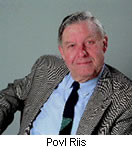Delegates identify common ground for European action in research ethics
As EU Commissioner for Science and Research Janez Potocnik is quick to recognise, the regulation of ethical issues in research remains the responsibility of Member States, reflecting the ethical pluralism of the Union. However, Mr Potocnik's presence on 27 January at a Commission organised conference for research ethics committees, entitled 'Facing the future together', suggests that he sees a role for the EU to play in supporting the work of such bodies while continuing to defer to national subsidiarity in this area. Commissioner Potocnik told delegates that: '[A] common set of basic shared values does exist at EU level. It is embodied in the European Charter of Fundamental Rights, which is an integral component of the constitutional project of the Union [and] a point of reference for all our policy making.' As well as shared values, the Commissioner highlighted other issues that are common features for research ethics committees in a number of Member States, such as a lack of financial resources, the need for training, and the lack of an appropriate national legislative framework within which to operate. 'This conference is intended to launch a political debate. It has been designed to focus on the practical aspects of your work, in order to open a discussion on what can be done at a European level to help the work of research ethics committees at local or regional level,' Mr Potocnik emphasised. Povl Riis, a former adviser to the EU and Council of Europe on research ethics, and an architect of the revised 1975 Declaration of Helsinki, gave a keynote speech detailing the development of research ethics to the present day. Professor Riis reminded the audience that improvements in human rights are sadly often the direct result of previous transgressions, and in marking the 60th anniversary of the liberation of Auschwitz, delegates also recognised one legacy of such atrocities as the widespread development of research ethics in the years that followed. While undoubtedly a positive trend, the spread of research ethics also brings with it pitfalls, Professor Riis warned: 'Today, we have a multitude of research ethical codes, but we need to organise them in a sensible way as some are simply incompatible and we must avoid confusing researchers.' The Commission has previously carried out an analysis of the role of research ethics committees in Europe. A 2002 survey sought to determine the legal framework and organisation of REC activities in 33 countries, and identify where conditions could be improved. It found that ethics committees were present in every country, but that there was a wide variation in the number of such bodies. Michael Fuchs, managing director of the institute for science and ethics in Bonn who helped conduct the research, also highlighted the differences in committee composition between countries. In Scandinavia, for example, lay people are well represented, and in Denmark they make up the majority. In other countries, however, lay people tend only to be present as the representatives of patient groups, and committees composed of medical doctors, researchers and lawyers are the norm. Speaking to CORDIS News, Professor Riis, himself a Dane, said that he favours committees where the majority of members are lay people. 'Lay people have the same knowledge and right to an opinion as medical experts when it comes to research ethics, and they have the advantage of not being so close to the work,' he argued. He also feels that is it better for regional committees to govern such issues, rather than the institutional committees that are the norm in many areas of Europe, as there is less likelihood of conflicts of interest arising from, say, hospital committees assessing a research proposal from a pharmaceutical company that will pay to carry out research in its own institution. Dr Fuchs revealed that a consensus had emerged among committee members during the survey that it would be helpful to promote exchanges of information and good practice at a national and international level. A number of interventions throughout the day identified a role for the Commission in this respect, as well as in building capacity and producing harmonised resources such as training manuals and textbooks. For a research ethics committee to perform its role effectively, knowledge of the scientific and ethical issues themselves is only part of the story. The standard procedures by which a committee operates are equally crucial, and in this there also appears to be marked variation between countries. Dr Fuchs revealed that many survey respondents had asked for a database of resources for the administration of RECs, of the kind now provided by Infonetica. The company's 'ethics committee administration system' (RED) - developed in the UK but now available to all countries - helps administrators to manage every aspect of the application processes, including provisional decisions, rejections, approvals, and amendments. It is in areas such as this that many at the conference felt the EU can play a significant role in helping the work of research ethics committees in Europe without encroaching on areas of Member State responsibility. Professor Riis, for one, is keen that this should happen. 'I've tried to push for European level involvement in research ethics for the last 30 years, and I'm very positive that it's starting now. It's not difficult to agree on fundamental human rights for when patients work with scientists, but no one is telling another country how to conduct their ethical reviews. From [areas of common ground] each culture can be left to operate their own system,' he concluded.



